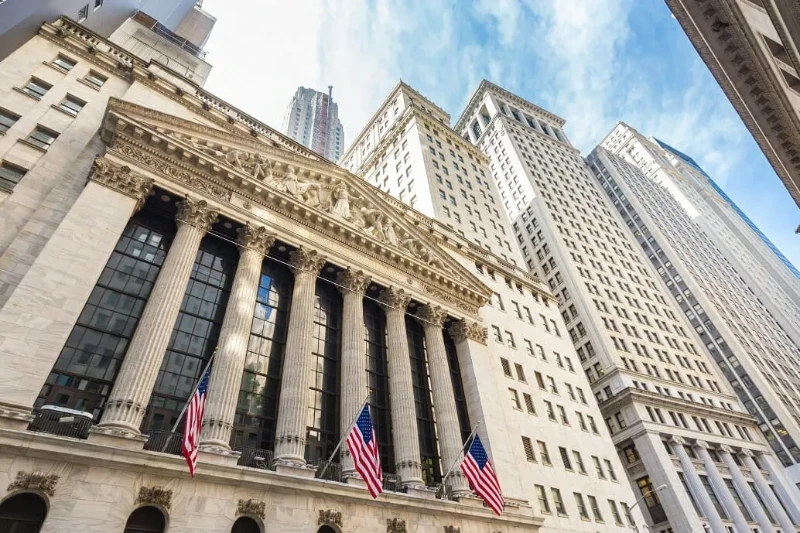Binance and SEC's Joint Motion
As the SEC seeks to pause its lawsuit against Binance, concerns mount over potential leniency towards major exchanges and the implications for investor protection.
In a significant development for the cryptocurrency world, Binance and the United States Securities and Exchange Commission (SEC) have jointly filed a motion to pause an ongoing lawsuit. This move is seen as a pivotal moment in crypto regulation, marking a potential shift in how regulatory bodies interact with major exchanges. The joint motion suggests that both parties are seeking to reassess their positions in light of new developments within the SEC itself.
The lawsuit against Binance, initiated by the SEC in June 2023, accused the exchange and its founder Changpeng Zhao of inflating trading volumes, diverting customer funds, and misleading investors about market surveillance controls. These allegations were part of a broader crackdown on crypto exchanges under Democratic leadership. However, this recent joint motion indicates a possible change in strategy as Republican leadership takes charge.
“The SEC’s case has always been without merit,” said a spokesperson for Binance.
A newly formed task force within the SEC aims to address crypto regulations more comprehensively. This task force could potentially influence ongoing cases like that against Binance by introducing new perspectives or strategies for resolution. "We’ve been approaching it backwards," said Republican SEC Commissioner Hester Peirce at a recent event, criticizing past enforcement methods that relied heavily on punitive measures rather than constructive regulation.
This joint motion represents not only a legal maneuver but also reflects broader political shifts within U.S. regulatory frameworks. Under President Donald Trump’s administration, there has been an evident pivot towards making America more crypto-friendly - a stark contrast from previous approaches that were often described as hostile or overly restrictive.
Industry experts have voiced concerns over this apparent leniency towards major players like Binance. There are fears about regulatory consistency and whether investor protection might be compromised in favor of fostering innovation or economic growth through cryptocurrencies. "Delaying legal proceedings where serious accusations exist can lead to dereliction of duty," warned former SEC official Corey Frayer.
SEC Commissioner Hester Peirce has long advocated for treating cryptocurrency as an emerging industry deserving careful consideration rather than blanket enforcement actions."Regulators need to recognize the greatness of that American spirit," she remarked recently while discussing how best to balance innovation with necessary oversight measures.
“Binance is not selling assets. This was simply an adjustment in the Binance treasury’s accounting process.” - CryptoSlate
The recent developments have also brought Binance's asset management strategies into the spotlight. Rumors circulating on social media suggested that Binance was offloading its major holdings, causing a stir among investors and market analysts. However, Binance has categorically denied these claims, attributing the changes to internal treasury management rather than liquidation efforts. "Binance is not selling assets," a spokesperson clarified to CryptoSlate. "This was simply an adjustment in the Binance treasury’s accounting process. User funds are SAFU, as always." This statement aimed to reassure stakeholders about the security of their investments.
Despite these reassurances, skepticism remains prevalent among some market participants who fear that such significant adjustments could indicate underlying financial instability within the exchange. A tweet by @CryptoDonAlt questioned, "Wait did Binance really dump all their major holdings on us in January?" reflecting concerns shared by many in the crypto community.
These events highlight broader implications for future regulatory approaches towards cryptocurrencies. The shift towards more lenient oversight under Republican leadership raises questions about potential risks associated with relaxed regulations versus benefits for innovation in financial technology.
Experts warn that while reduced regulatory pressure might foster innovation and growth within the crypto industry, it could also lead to increased opportunities for fraudulent activities and investor exploitation if not carefully managed. Former SEC official Corey Frayer expressed his concern over this balance: "Delaying a case where the CEO pled guilty... clarifies shifts on crypto may culminate in dereliction of duty," he told Reuters.
On one hand, proponents argue that less stringent regulations can help position the U.S. as a leader in global cryptocurrency markets by attracting more businesses and fostering technological advancements. On the other hand, critics caution against potential negative consequences such as loss of public trust and increased systemic risk.
The unfolding situation with Binance serves as a critical test case for how similar scenarios might be handled moving forward under new regulatory paradigms. It underscores an ongoing debate between maintaining strict oversight to protect consumers versus allowing greater freedom for innovation within emerging industries like cryptocurrency.
Ultimately, these developments could reshape public trust in regulatory bodies and influence future interactions between government entities and cryptocurrency exchanges worldwide.
